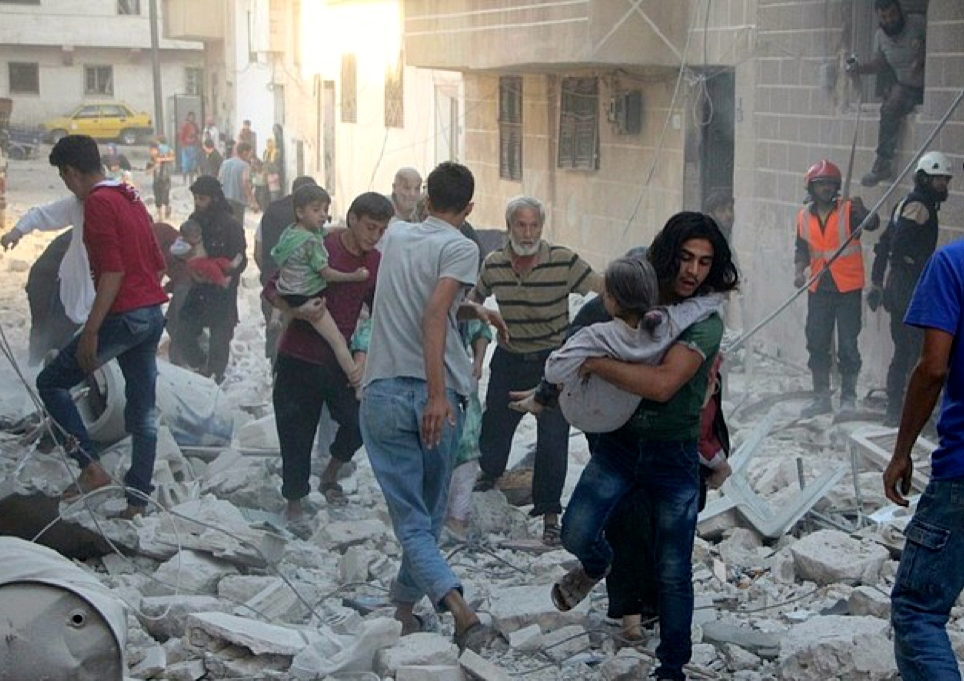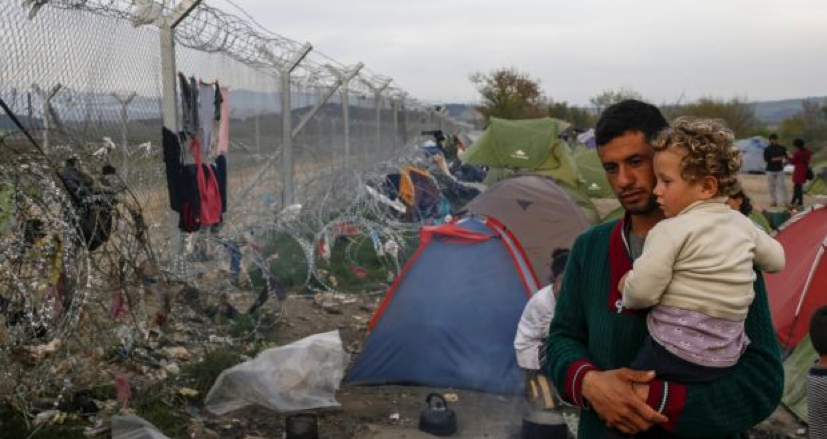
In 2017 I wrote about my friend, Mohammed “Med” Malandi, a young Syrian refugee living in Berlin. I told the story of his harrowing escape and journey across Turkey, to Greece, then on to Macedonia, Serbia, Hungary, Austria and finally to Germany. Med is one of the lucky few. In 2018 he was granted asylum and the right to work in Germany. His brother, Hussein, landed in the Netherlands, but their parents stayed in Idlib – one of the few remaining rebel-controlled areas in the northwest corner of Syria.
Then, in October 2019, after an unscheduled phone conversation with President Erdogan of Turkey, Trump withdrew the small US Special Operations contingent near the Turkish border and in so doing gave Turkish troops a green light to attack the Kurdish rebels our US troops were supporting. Without Kurdish resistance, Russia and Syria resumed their assault on the rebels in Idlib. Until then, Med’s parents were relatively safe.
If you’re wondering why I’m writing about Med again, it’s because coronavirus and the US election are choking the American news cycle. News of the humanitarian catastrophe in Syria has been missing from the American papers.
While Turkey’s aim was to rid the border of its Kurdish neighbor, it was also opposed to Assad and supported the rebel resistance. Last week, a Russian bomb killed 33 Turkish soldiers in the Idlib area. They were no match for the combined Russian/Syrian air-ground assault on Idlib.
Nearly a million Syrian civilians have been displaced from Idlib, and their escape route to Europe across the Turkish border is blocked by the Greeks. Last week, Erdogan breached a 2016 agreement with the European Union and released thousands of refugees to cross the Greek border. Hoping to find a safe haven, the first stop for many is the Greek island of Lesbos. Med Malandi stopped there in 2015.
From Lesbos the refugees hope to get to Europe, but Lesbos is the bottleneck. The Greeks are holding the migrants in squalid conditions in a camp on the island. This morning I read the following (translated) story by Franziska Grillmeier, a German journalist reporting on the crisis. She reports that the Moria refugee camp built for 2,000 now has more than 10,000 and there are,
“coordinated attacks of right-wing groups are happening hourly on Lesvos at the moment – violence is aimed at refugees, humanitarian helpers and journalists.
The camp residents are completely on their own. Yesterday a group of protesters in Moria were pushed back under heavy tear gas. No one can document what happens to people. Are there any injuries? Who needs acute help? Not to mention people with disabilities, the old and newborns who are left behind every night under acute danger of life.
As part of the Turkish border opening, it’s rumored that there is a ferry going from Moria to Athens, where people can travel to Europe safely. A dangerous fallacy. Once the refugees are on the streets, they run at risk of being attacked by right-wing groups, partially armed with chains, stones & batons.
The people now arriving on the beaches with inflatable boats are on their own. No one is around to provide first aid, give them water and fresh blankets. Most can’t be brought to the camp for registration because right-wing groups are blocking the access road to the camp.
Last night I was attacked in the car along with my colleague Julian Busch by black-dressed men. They blocked our way to the passage on the coastal road, tried to jump on the car, break windows and break doors open – we managed to turn around, they threw stones and sticks at us. We’re fine.
Police are overwhelmed. There’s no support right now. The violence that has built up in recent months implodes inward and is aimed at the most vulnerable. It hasn’t been like this since yesterday. Now lawlessness has peaked.”

Today, after this article was almost complete, the Seattle Times finally published an article about the crisis at the camp and the chaos at the Turkish border. https://www.seattletimes.com/nation-world/thousands-of-migrants-look-for-way-around-shut-greek-border/
Last week, when I asked Med about his family and Idlib, he told me “They are still living there and they are fine until now, but the Russians are stepping up military action and trying to break the Americans and Turks who are defending them.” Our mutual friend tells me that Med has experienced nightmares and panic attacks. He feels bad about living safely in Berlin when his family’s fate is uncertain.
My feelings are complicated. When I think of Med and his family I feel guilty. My life is easy while theirs is under attack. I’m safe in America and they’re displaced somewhere north of Idlib. Med is no different from you and me. His father was a teacher, his mother a housewife, and he was an aspiring artist. The Malandi’s and their neighbors are ordinary people caught up in a terrifying political and military nightmare that has drawn Russia, Iran, Turkey, and the United States into a geopolitical quagmire that’s left Syria a pile of rubble.
Despite his family’s ordeal, Med is safe in Berlin and our mutual friend, Claudia, is his go-to support system. She’s an old friend from my Pan Am days and a real treasure who’s involved in helping other Afghan and Syrian refugees in addition to Med. Last week, she interrupted our email exchange because Waheed, a young Afghan who hasn’t seen his wife and child in 4 years, was stopping by for some help with government paperwork.
Coronavirus is alive and well in Kirkland, just 5 miles from where we live. So far, it’s claimed nine victims at a local nursing home. It’s scary but compared to what Med and his family have been through it’s a walk in the park. So, when your life seems difficult or threatened by a wayward virus you might want to give thanks that you and your family aren’t being beaten by a bunch of Neo-Nazi thugs in a refugee camp on Lesbos. Like the unforeseen virus, bad things happen to ordinary people in other ways too.

Med Malandi’s Self-Portrait
































Jack,
Thank you.
Jon
Thank you for taking interest in the fate of these refugees. For us, Europeans, it is hard to understand what they are going through, for our life was always save, at least during the last 75 years… I still remember what my parents and grandmother’s told us, some had to leave their homes also and were not welcomed even in their own homecountry, after WW2… people forget so easily… now we can only hope for empathy and humanity, I see a lot of good signs though, a lot of creativity and help has been flown into groups that are engaged to find solutions, a lot of elderly people (like me 🙂 ) together with young ones are working together, in so many ways… but the politicians must keep our values, too – against the greed